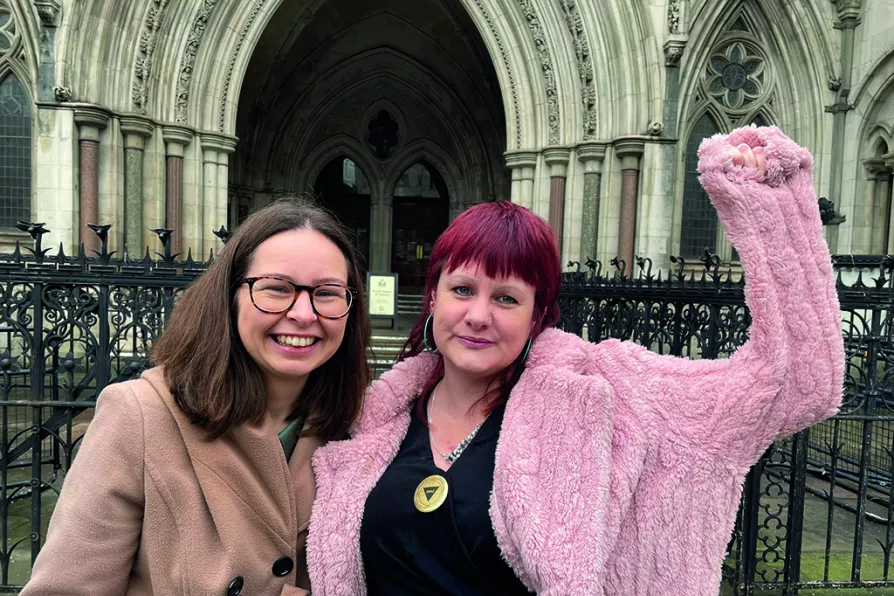The selection, analysis and interpretation of historical ‘facts’ always takes place within a paradigm, a model of how the world works. That’s why history is always a battleground, declares the Marx Memorial Library
Helping the economy should not mean bullying the disabled
EMMA COTTON explains the significance of a recent win at the High Court for a disability rights campaigner against the Secretary of State for Work and Pensions over a ‘misleading’ and ‘unfair’ consultation on social security cuts

 Ellen Clifford (right) outside the High Court with her solicitor from Public Law Project, Aoife O’Reilly
Ellen Clifford (right) outside the High Court with her solicitor from Public Law Project, Aoife O’Reilly
DESPITE losing in the High Court over proposals to make changes to the Work Capability Assessment, the government is pushing ahead with plans that will further impoverish disabled people on a mass scale.
In January, the judgment was handed down in the legal case taken by disabled activist Ellen Clifford against the Secretary of State for Work and Pensions.
The judge, Mr Justice Calver, found in her favour, ruling that the consultation on the proposals was “misleading,” “rushed” and “unfair,” squashing plans by the Department of Work and Pensions (DWP) to cut nearly £5,000 a year in social security (“welfare benefits”) from almost half-a-million disabled people.
Similar stories

Labour accused of ‘balancing the books off the backs of the poor’ in spring spending statement

Labour is deliberately continuing Tory policies that cost us £38 billion more than they save while driving illness rates higher — despite the evidence that previous sanctions doubled suicide attempts, writes CLAUDIA WEBBE

Social security is lagging further and further behind inflation and our government quite simply does not care, argues Dr DYLAN MURPHY

Far from addressing the causes of ill-health and disability, Starmer, Reeves and Kendall are committed to unleashing more misery for disabled people, argues Dr DYLAN MURPHY










